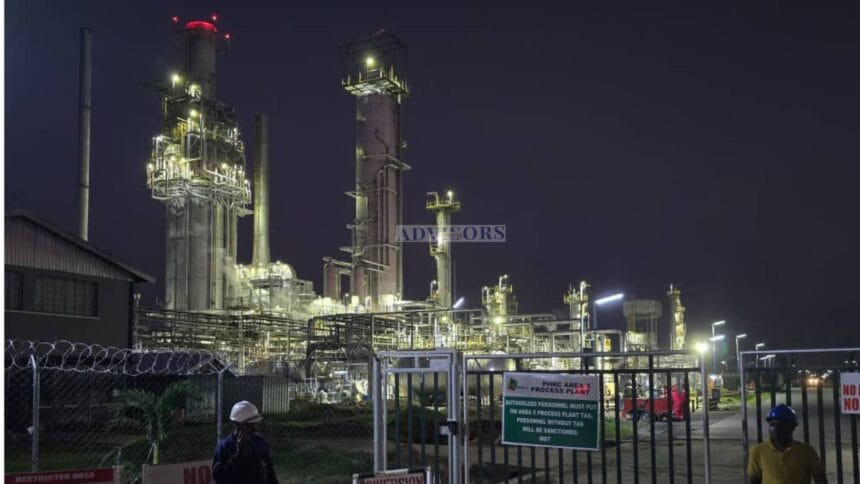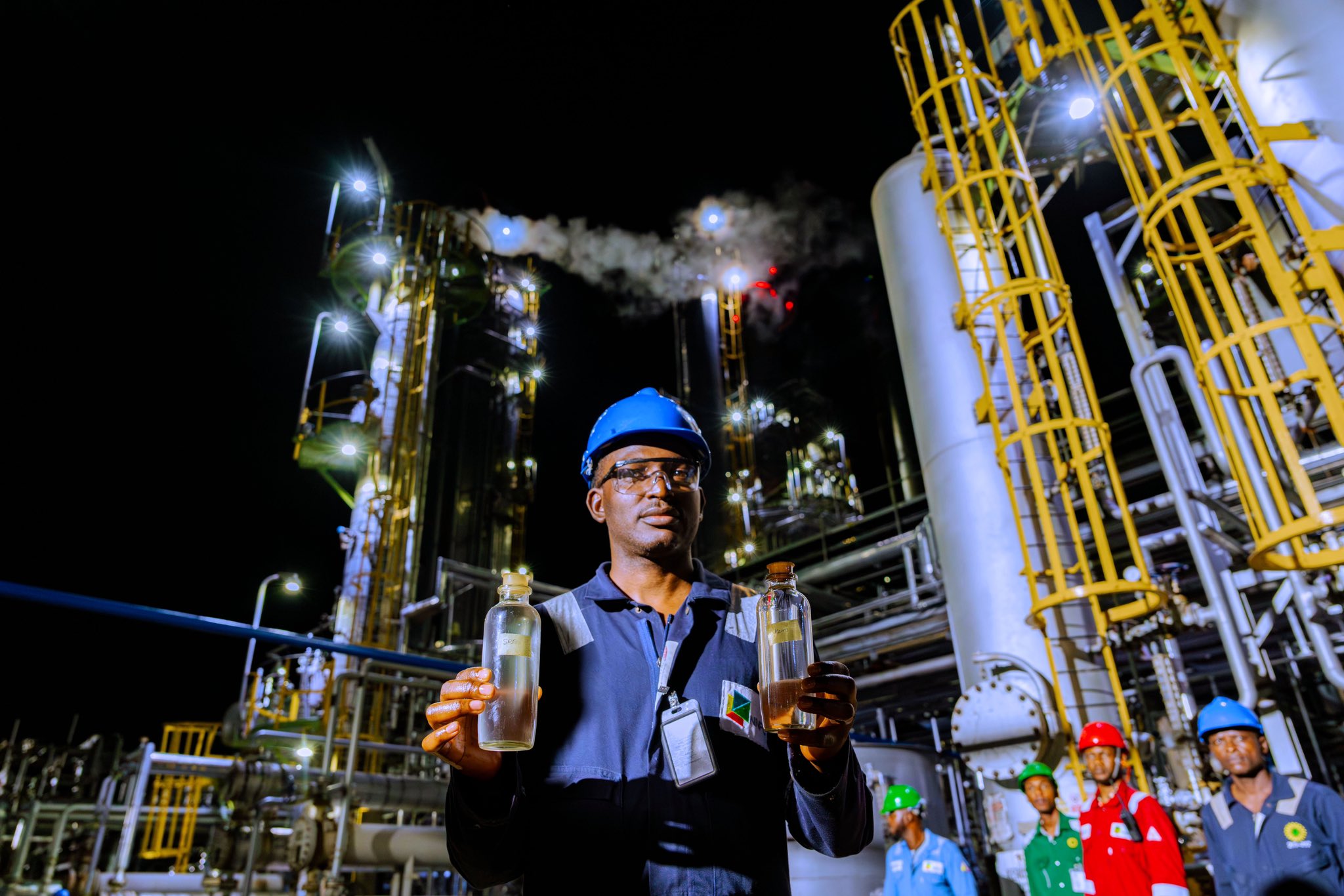… begins dispatch of petrol, diesel, kerosene, other petroleum products
“About 200 trucks expected to load products daily ” – Sunday Dare, SA, Media and Public Communication to President Tinubu
Oredola Adeola
The Nigerian National Petroleum Corporation Limited (NNPC Ltd) is set to officially launch the Port Harcourt Refinery today, Tuesday, November 26, 2024, at 1:45 pm, marking the start of refined product truck-out operations.
Olufemi Soneye, Chief Corporate Communications Officer NNPC Ltd. made this known in a statement obtained by Advisors Reports on Tuesday.
According to him, on Tuesday, trucks began loading petroleum products which include Premium Motor Spirit (PMS) or petrol, Automotive Gas Oil (AGO) or diesel, and Household Kerosene (HHK) or Kerosene, while other product slates will be dispatched as well.
Mr. Mele Kyari, Group CEO of NNPCL on his part speaking during a brief ceremony to mark the commencement of product loading at the Refinery on Tuesday in Port Harcourt, described the commencement of the loadout activities as a monumental achievement for Nigeria which signifies a new era of energy independence and economic growth for the country.
The GCEO particularly thanked President Bola Ahmed Tinubu for his unwavering support and understanding towards the rehabilitation project and for his persistence in ensuring energy security for the country.
Kyari also expressed deep appreciation to the NNPC Ltd Board of Directors and the entire staff for their support and commitment, which crystallized into the streaming of the refinery.
He also commended the contractors for doing a great job in ensuring that the refinery is delivered despite all challenges.
The GCEO further thanked Nigerians for their patience and for the legitimate expectations of the company to deliver on the other refineries.
Mr. Farouk Ahmed, Chief Executive of the Nigerian Midstream & Downstream Petroleum Regulatory Authority (NMDPRA), congratulated the NNPC Ltd for the milestone and assured of his agency’s continued support towards the completion of rehabilitation work at the other refineries.
Chief Corporate Communications Officer NNPC Ltd. further stated that the PHRC rehabilitation project is an Engineering, Procurement, Construction, Installation & Commissioning (EPCIC) project that is aimed at restoring the refinery to full functionality and renewal.
He added that the facility has achieved over 16 million manhours with zero Loss Time Injury (LTI).
Sunday Dare, Special Adviser on Media and Public Communication to President Bola Tinubu, in a statement via his official X handle, highlighted the significance of that milestone, noting that approximately 200 trucks are expected to load petroleum products daily from the facility.
“This development renews the hope of Nigerians as the refinery begins to address domestic fuel supply challenges,” Dare added.
The SA, Media, and Public Communication to President Tinubu stated that the President’s oil sector reforms are on track, providing a significant boost to local PMS refining.
Advisors Reports gathered that the Port Harcourt Refinery, one of Nigeria’s major refining assets, consists of two plants with a combined capacity of 210,000 bpd—the old plant with a capacity of 60,000 bpd and a newer plant designed for 150,000 bpd.
The refinery’s old wing, which is now operational, is expected to initially operate at 60 percent capacity, with plans to gradually increase production over time.
Its resumption is expected to pave the way for the eventual commissioning of the larger, more modern plant.
It is worth recalling that in December 2023, the Federal Government announced the “mechanical completion” of the refinery and reported its initial flare start-off as part of its refurbishment phase.
As one of Nigeria’s largest refineries, the Port Harcourt Refinery is expected to play a key role in reducing the country’s dependence on imported refined petroleum products, thus contributing to greater stability in Nigeria’s fuel supply.
This milestone signals a new phase in Nigeria’s efforts to boost domestic oil production and lessen its reliance on foreign petroleum imports.





